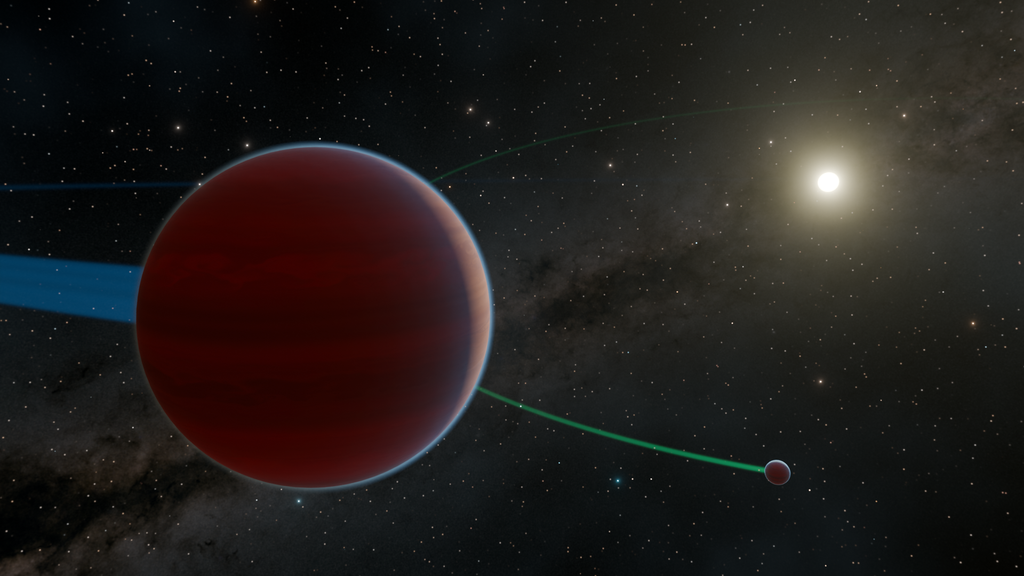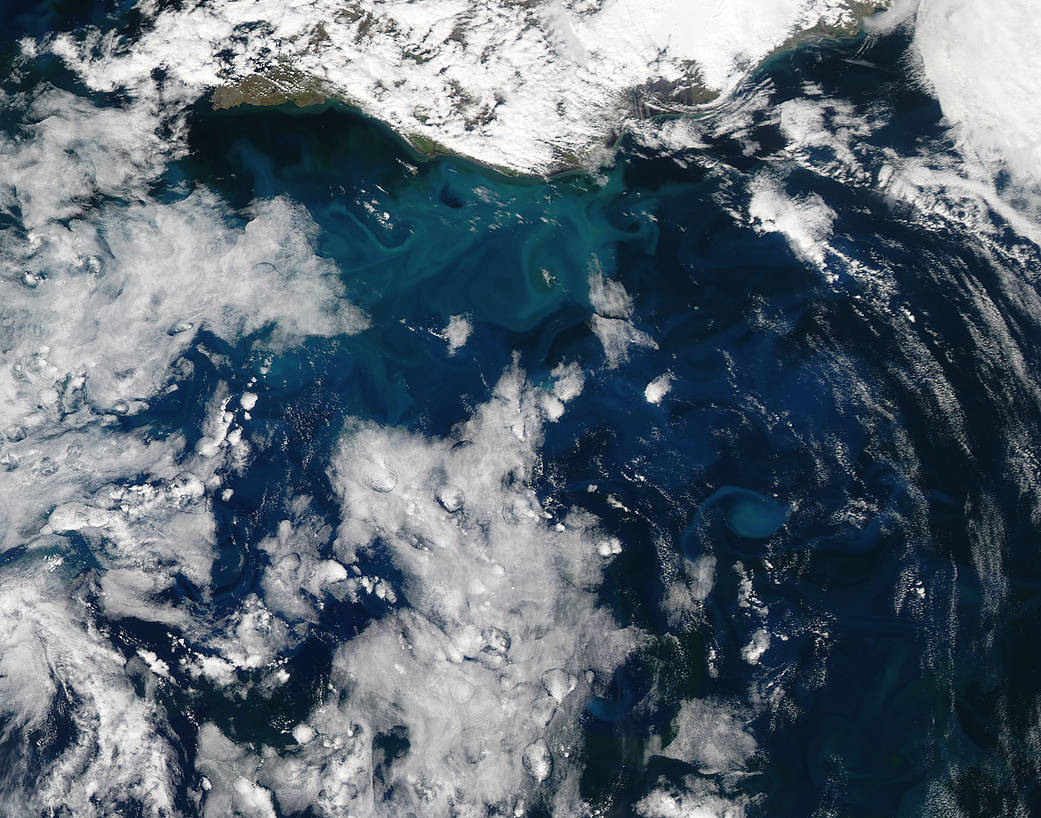A spring bloom of phytoplankton lingered in the Atlantic Ocean off the coast of Iceland in early June, 2014. The Moderate Resolution Imaging Spectroradiometer (MODIS) aboard NASA’s Aqua satellite captured this true-color image on June 5. At that time, swirling jewel tones of a vast bloom were visible between banks of white clouds.
According to the Icelandic Ministry of Fisheries and Agriculture, phytoplankton blooms around Iceland usually occur in early spring and fall. The spring bloom is driven by longer daylight and the warming of surface layers. This leads to stratification of the waters, and allows the phytoplankton to stay in the surface layer and reproduce. By summer the huge numbers of phytoplankton in the blooms decreases nutrients, and the numbers of the organisms begins to plummet.
Image Credit: NASA/Jeff Schmaltz, MODIS Land Rapid Response Team, NASA GSFC
























